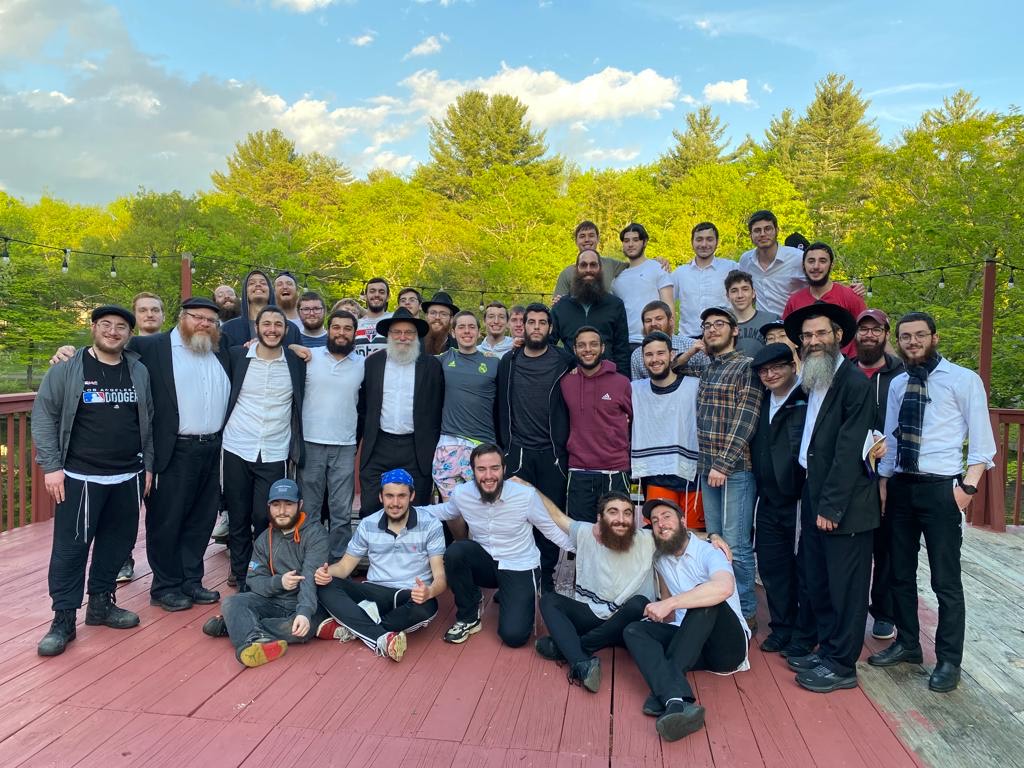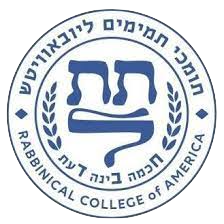
FAQs
There is no formal dress code in yeshiva, however students are expected to dress respectfully and with modesty. Short pants are discouraged in the study and prayer hall. Clothing that represents cultures contrary to the yeshiva environment should not be used at all.
Devices such as phones and tablets have greatly advanced the way we access information and knowledge. But they also carry potential dangers, such as exposure to inappropriate content. To ensure the safety and well-being of students, Tiferes Yeshiva requires all devices to have filters that block improper content. During learning sessions (seder), devices must be put away or locked, unless requested by a teacher. Devices can be used during designated breaks and should be put away after lights out for the night. The level of enforcement for this policy will vary based on the student’s age and time spent in the yeshiva. Tiferes Yeshiva prioritizes instruction which is inspiring and uplifting, but recognizes the need for responsible device usage to maintain a safe and productive learning environment.
For more information on dining options, please refer to the Dining Page.
Nearby grocery stores, such as Whole Foods and Shoprite, offer a wide range of kosher and dietary-friendly options, including gluten-free products. Trader Joes is located a 15-minute drive from the Yeshiva, while Walmart can be found a few minutes past Shoprite in Cedar Knolls.
Attending yeshiva from the start to the end of the semester is essential for any student pursuing a degree or wishing to master their studies. Absence can impact learning and grades. Breaks and Shabbat time are built into the schedule for appointments or time away. Requests to leave outside of these times should be made in advance. The new academic year began on August 28, 2022. Every student should strive to make the most of their time in yeshiva.
Every morning, the Chassidus class starts at 7:30 AM, and the Gemara class begin after breakfast at 11:00 AM.. On Friday mornings, the schedule is more flexible. There are usually no formal classes on Fridays, making it a great opportunity to apply what a student has learned through outreach activities (mivtzoim). A designated student will be in charge of coordinating these efforts.
Mincha starts 5-10 minutes after candle lighting time, which will is posted each week. The evening includes chavrusa learning and singing of Chassidic songs during “seder nigunim”. This is followed by a warm and invigorating Shabbos meal together with the other students.
On Shabbat morning, Chassidic studies start at 8:30 am and Shacharis (morning prayer) begins at 10:00 am. Students are sometimes invited to the homes of community members for Shabbat meals. This is a valuable opportunity to experience a Chassidic household. However, students should ensure that there are no conflicts with the Yeshiva schedule, such as a farbrengen or other special events.
Once a month, the Yeshiva will close for Shabbat. Students can make arrangements for these weekends outside of the Yeshiva. If there are any difficulties, students should reach out to a member of staff at least a few days in advance. Scheduled breaks are ideal for scheduling any time a student needs to be away from the Yeshiva.
Chassidic tradition holds that serving G-d is not limited to prayer or studying Torah, but also extends to everyday activities like eating and sleeping. To that end, the dormitory must be kept tidy and respectful as a reflection of the Divine presence.
As a resident of the dormitory, it’s important to consider the needs and comfort of others. Food and drink are allowed in the dormitory, but any messes must be cleaned up promptly. Cooking appliances must be approved by the groundskeeper.
Valuables should not be left unprotected and it’s recommended to entrust them to the dormitory leaders for safekeeping. The yeshiva and dormitory are not responsible for theft or damage of personal belongings. To accommodate different sleep schedules, a lights-out time of 11:00 pm is suggested. Quiet conversations after this time are encouraged, or moved outside to minimize noise for others. If any discomfort arises in the dormitory, residents are encouraged to reach out to the dormitory leaders for resolution.
Most full time students prefer to bring their own linen. Yeshiva does have linen to provide for visitors.
To make sure that the laundry facilities run smoothly and efficiently, students are asked to limit their use of the machines to one wash and one dry cycle per week. Additionally, it is important to sort clothes properly and to only use the machines for personal laundry items. Misusing the machines, such as overloading or causing damage, may result in a fine and will be the responsibility of the individual student. If you experience any issues with the machines, please report them to the facilities manager.
The Yeshiva has established a partnership with several Jewish bookstores to provide students with access to seforim at discounted prices. To order these materials, students can work with an appointed representative who can help them find the resources they need.
In addition to these bookstores, the surrounding area also offers several grocery stores that carry a variety of kosher products, including health foods and options for those with dietary restrictions like gluten-free options. For students looking for a wider selection, there is Wholefoods and Shoprite, both of which offer a range of kosher products.
For those willing to travel a little farther, a 15-minute drive away is Trader Joes and Walmart in Cedar Knolls. These options offer a comprehensive shopping experience for students and provide access to the products they need to sustain a healthy and well-rounded lifestyle during their time at the Yeshiva.
The Yeshiva encourages students to find healthy outlets for relaxation and rejuvenation, within the guidelines of Halacha. Exercise and physical activity are encouraged for both physical and spiritual health, with various sporting facilities available on the spacious grounds and a gym in the Tiferes dormitory. While there is no official ban on watching non-Jewish media, such activities should be done privately and not disturb others or interfere with seder. Lending electronic devices, especially those with data or internet access, is strictly forbidden and may result in confiscation of the device. Any concerns should be brought to the attention of the hanhola.
Our facility is equipped with a highly sensitive smoke detection system. Setting off the fire alarm incurs significant expenses and inconvenience for all. If a student is found to have caused the alarm through negligence, they will be liable for a fine to compensate the Yeshiva.
Alcohol can only be consumed responsibly by those over 21 years of age. Sharing alcohol with anyone under 21 is illegal and can have severe emotional and legal consequences. Recreational drinking, even for those of legal age, is discouraged. Alcohol should not be consumed in the dormitories or in any “farbrengen” environment. If a student becomes inebriated, it may lead to a suspension from the yeshiva so the emotional cause can be addressed.
Tobacco use is discouraged, but allowed for those of legal age outside of the buildings at a safe distance. Vaping devices are not permitted inside the building.
Illegal substances, including marijuana, are strictly prohibited and possession or use may result in immediate expulsion. CBD usage is only permitted with proper medical reason and a doctor’s note.
Rabbi Boruch Hecht, (973) 668-3219, should be notified in advance when a student will arrive and called upon arrival.
